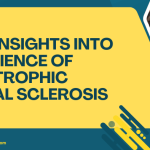Engaging in mentally stimulating activities is crucial for maintaining cognitive function as we age. It can be as simple as doing a crossword puzzle or picking up a new hobby.
7 Lifestyle Changes to Reduce Neurodegenerative Risks
Table of Contents
- Introduction
- 1. Embrace a Brain-Healthy Diet
- 2. Stay Physically Active
- 3. Prioritize Sleep
- 4. Engage in Mental Stimulation
- 5. Foster Strong Social Connections
- 6. Manage Stress Effectively
- 7. Avoid Harmful Substances
- Conclusion
- FAQs
Introduction
Neurodegenerative conditions like Alzheimer’s disease, Parkinson’s disease, and other forms of dementia are increasingly prevalent in our aging population. While genetics plays a role, lifestyle factors can significantly influence the risk of developing these conditions. Fortunately, there are proactive steps you can take to safeguard your brain health. In this article, we will explore seven lifestyle changes that can help reduce your risk of neurodegenerative diseases.
1. Embrace a Brain-Healthy Diet
What you eat has a profound impact on your brain health. A diet rich in antioxidants, healthy fats, vitamins, and minerals can help combat oxidative stress and inflammation, both of which are linked to neurodegeneration.
Key Components of a Brain-Healthy Diet:
- Fruits and Vegetables: Aim for a colorful variety. Berries, leafy greens, and cruciferous vegetables are particularly beneficial.
- Healthy Fats: Incorporate sources of omega-3 fatty acids, such as fatty fish (salmon, mackerel), walnuts, and flaxseeds.
- Whole Grains: Foods like quinoa, brown rice, and oats provide essential nutrients and fiber.
- Nuts and Seeds: These are packed with nutrients and healthy fats that support brain function.
Sample Brain-Healthy Plate
| Food Group | Examples |
|---|---|
| Fruits | Blueberries, Spinach |
| Vegetables | Broccoli, Kale |
| Healthy Fats | Avocado, Olive Oil |
| Whole Grains | Quinoa, Brown Rice |
| Protein Sources | Salmon, Lentils |
For more information on brain-healthy eating, check out this article.
2. Stay Physically Active
Regular physical activity is not just good for your body; it’s essential for your brain. Exercise increases blood flow to the brain, promotes the growth of new neurons, and can reduce the risk of cognitive decline.
Recommended Activities:
- Aerobic Exercises: Walking, running, cycling, and swimming can boost cardiovascular health and brain function.
- Strength Training: Lifting weights or doing bodyweight exercises can improve overall physical health, which in turn benefits brain health.
- Balance and Flexibility: Activities like yoga and tai chi enhance coordination and reduce fall risks, which is crucial as we age.
Exercise Frequency Guidelines
| Activity Type | Frequency |
|---|---|
| Aerobic Exercise | At least 150 minutes/week |
| Strength Training | At least 2 days/week |
| Balance/Flexibility | 2-3 days/week |
For a comprehensive guide to exercise, visit the CDC’s Physical Activity Guidelines.
3. Prioritize Sleep
Sleep is vital for cognitive function and overall health. Poor sleep quality can lead to increased inflammation and changes in brain structure, both of which are risk factors for neurodegenerative diseases.
Tips for Better Sleep:
- Establish a Regular Sleep Schedule: Go to bed and wake up at the same time every day.
- Create a Sleep-Friendly Environment: Keep your bedroom cool, dark, and quiet.
- Limit Screen Time Before Bed: The blue light emitted by screens can disrupt your sleep cycle.
Sleep Duration Recommendations
| Age Group | Recommended Sleep Duration |
|---|---|
| Adults (18-64 years) | 7-9 hours |
| Older Adults (65+) | 7-8 hours |
For additional sleep tips, refer to the National Sleep Foundation.
4. Engage in Mental Stimulation
Keeping your brain engaged is crucial for maintaining cognitive function. Mental stimulation can be achieved through various activities that challenge your brain.
Effective Mental Activities:
- Puzzles and Games: Crossword puzzles, sudoku, and board games can be both fun and beneficial for your brain.
- Learning New Skills: Take up a new hobby, learn a language, or enroll in a class.
- Reading: Reading books, articles, or even listening to audiobooks can keep your mind sharp.
Benefits of Mental Stimulation
Engaging in mentally stimulating activities has been shown to promote neuroplasticity, the brain’s ability to reorganize itself by forming new neural connections. This process is crucial for maintaining cognitive function as we age.
For further insights into brain health, visit the Alzheimer’s Association.
5. Foster Strong Social Connections
Maintaining strong social ties is linked to better cognitive health. Engaging with others can reduce stress, enhance mood, and even improve brain function.
Ways to Strengthen Social Connections:
- Join Clubs or Groups: Participate in community activities or clubs that align with your interests.
- Volunteer: Helping others boosts your mood and helps you connect with new people.
- Stay in Touch: Regularly reach out to family and friends, whether through calls, texts, or in-person visits.
Social Connection Benefits
Research indicates that social engagement can help mitigate cognitive decline. People with strong social ties often have better memory and cognitive skills than those who are more isolated.
For more information on the importance of social connections, check out this study from the National Institute on Aging.
6. Manage Stress Effectively
Chronic stress can have detrimental effects on brain health and is associated with an increased risk of neurodegenerative diseases. Learning how to manage stress is crucial for overall well-being.
Stress-Reduction Techniques:
- Mindfulness and Meditation: Practicing mindfulness can improve focus and reduce stress.
- Deep Breathing Exercises: Simple breathing techniques can help calm your mind and reduce anxiety.
- Physical Activity: Regular exercise is a great way to alleviate stress.
Benefits of Stress Management
Effective stress management can enhance mood, improve sleep quality, and boost cognitive function. By prioritizing relaxation and self-care, you can protect your brain health.
For more on stress management techniques, visit the American Psychological Association.
7. Avoid Harmful Substances
Certain lifestyle choices can increase your risk of neurodegenerative diseases. Avoiding harmful substances is critical for maintaining brain health.
Substances to Avoid:
- Excessive Alcohol: While moderate alcohol consumption may have some health benefits, excessive intake is linked to cognitive decline.
- Tobacco: Smoking is associated with an increased risk of dementia and cognitive impairment.
- Recreational Drugs: Many illegal substances can adversely affect mental function and overall health.
Tips for Avoiding Harmful Substances
- Set Limits: If you choose to drink, do so in moderation.
- Seek Support: If you’re struggling with substance use, consider seeking help from professionals or support groups.
For more information on the impacts of these substances, check out the World Health Organization.
Conclusion
Taking proactive steps to reduce the risk of neurodegenerative conditions is essential for maintaining brain health as we age. By embracing a brain-healthy diet, staying active, prioritizing sleep, engaging in mental stimulation, fostering social connections, managing stress, and avoiding harmful substances, you can significantly improve your cognitive health and quality of life. Remember, small changes can lead to significant benefits over time.
FAQs
Q: Can I completely prevent neurodegenerative diseases with lifestyle changes?
A: While lifestyle changes can significantly reduce risk, they cannot guarantee complete prevention due to genetic factors and other influences.
Q: How long do I need to follow these lifestyle changes to see benefits?
A: Many benefits can






